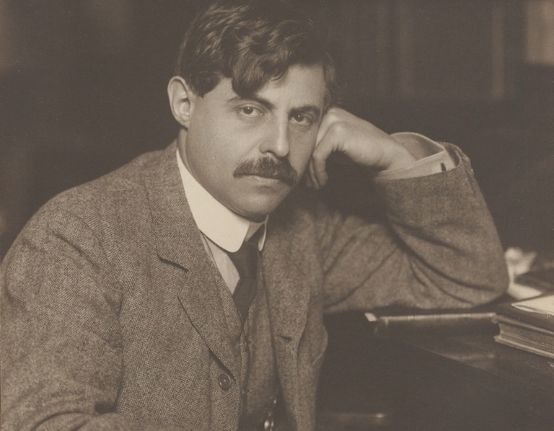Never really arrived
The composer and conductor Hermann Hans Wetzler, born in Frankfurt am Main in 1870 and died in New York in 1943, is presented in Heinrich Aerni's biography with many testimonials.

Who was Hermann Hans Wetzler? Heinrich Aerni makes no secret of the fact that this name has been forgotten today. All the more meticulous is his research into Wetzler's biography, which he divides into three parts based on the estate in the Zurich Central Library. First, Aerni traces Wetzler's numerous geographical "stations", which, even at a glance, are characterized by restless back and forth between the USA, Germany and Switzerland. Aerni then devotes two further sections to Wetzler's career as a conductor and composer. An extensive appendix also provides information about Wetzler's appearances as a conductor and musician as well as the performance dates of his compositions. Although Aerni announces in the introduction that he will focus on readings of the history of mentality and identity, the strength of the book lies less in a theorizing decoding of the material than in the material itself. The author is able to present the undoubtedly breathtaking wealth of sources clearly, even if a more frequent paraphrasing of the many quotations, some of which are reproduced at considerable length, would make the book even more reader-friendly.
But who was this forgotten man? Wetzler was born in Germany in 1870 to Jewish parents, but spent his childhood in Chicago and Cincinnati, where he was regarded as a musical "child prodigy" (p. 19). He later lived for long periods in both Germany and the USA and was not only active as an organist, violinist, conductor and composer, but also as a music organizer: at the age of 30, he already had his own orchestra, with which none other than Richard Strauss celebrated his US debut in 1903. Nevertheless, Wetzler moved back to Germany in 1905, where he oscillated between successes and failures as a conductor and composer for 25 years, and was in contact - and sometimes even rivaled - with renowned greats of the time such as Nikisch, Klemperer and Furtwängler. However, he was unable to achieve lasting success in either function. As a conductor, for example, he was criticized for his indistinct beat, while he also received little recognition as a composer of "comparatively small compositional works". Nevertheless, he devoted himself more and more intensively to composing, so much so that in April 1933 he wrote from Switzerland that he had no time to concern himself with political events as he was concentrating entirely on his work.
Detailed, source-rich descriptions of such biographical circumstances and developments are undoubtedly one of the advantages of Aerni's book. However, it would be desirable for them to be integrated into the history of music, time and society to an even greater extent than is done in a short subchapter (pp. 160-169). Aerni's portrayal of Hermann Hans Wetzler's life as such familiarizes the reader well. However, even after reading the book, it is not really clear why the author chose to focus on Wetzler in particular.
Heinrich Aerni, Between the USA and the German Reich. Hermann Hans Wetzler (1870-1943). Conductor and composer, Schweizer Beiträge zur Musikforschung, vol. 22, 476 p., € 37.95, Bärenreiter, Kassel 2015, ISBN 978-3-7618-2358-3








